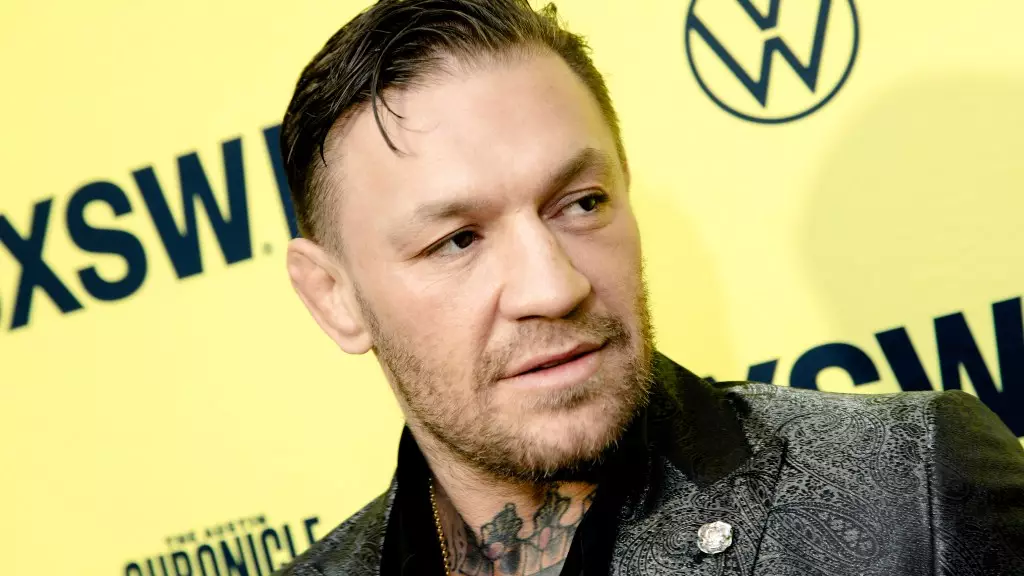The ongoing civil trial of Conor McGregor, one of the most recognized names in mixed martial arts (MMA), has garnered significant attention not only for the celebrity involved but for the serious allegations surrounding it. As the trial unfolds in Dublin, McGregor finds himself defending against claims made by Nikita Hand, who accuses him of raping her in a hotel room following a night out in December 2018. The case shines a light on broader social issues around consent, celebrity culture, and the legal system’s handling of sexual assault claims.
During the trial’s proceedings, McGregor assertively denied the allegations, characterizing the events of that night as consensual. As he took the stand, he expressed extreme distress upon learning of the investigation into him, describing it as “the most scared thing I have gone through in my life.” This emotional reaction lays the groundwork for understanding McGregor’s mindset throughout these allegations and his approach to defending himself.
McGregor claimed that he and Hand were not only acquaintances but engaged in consensual sexual activity, stating that Hand had initiated contact and exhibited flirtatious behavior from the onset of their encounter. In stark contrast, Hand’s allegations paint a nightmarish scenario in which she felt coerced and violated. Such conflicting narratives are common in sexual assault cases, highlighting the complex nature of consent and interpersonal interactions.
A crucial factor in this case involves the use of alcohol and cocaine. Both McGregor and Hand reportedly consumed drugs before the sexual encounter. This raises questions about ambiguity in consent and the reliability of memories from that night. While McGregor claims that their interaction was consensual, Hand insists that her intoxicated state impeded her ability to give valid consent. This predicament illustrates the nuanced implications of substance use in sexual encounters and how it complicates discussions about consent.
Witness testimonies play a critical role in shaping perceptions surrounding the truth of the incident. Friends and medical professionals who have taken the stand describe Hand’s mental state following the incident and the physical bruises she sustained, suggesting there may be more to the story than McGregor claims.
As the trial progressed, several witnesses were called upon to provide their accounts. Among them was Hand’s coworker, Danielle Kealey, who was reported to be present during the encounter. Her testimony introduced another layer of complexity to the case; she stated that she had not observed anything out of the ordinary when Hand emerged from the hotel room and that she did not notice any injuries. This kind of testimony can often leave jurors teetering on a precarious divide between conflicting narratives.
Kealey’s account, particularly the claims of not observing any signs of distress, pose significant challenges for Hand’s allegations. However, the impact of trauma can be difficult to quantify or observe, especially in the immediate aftermath of an assault. The juxtaposition between Kealey’s observations and Hand’s lived experience underscores the difficult terrain that courts must navigate when adjudicating such sensitive cases.
The public and legal scrutiny surrounding this incident reflects broader societal concerns regarding the power dynamics between sexual assault survivors and prominent figures like McGregor. This case highlights how celebrity can complicate legal proceedings, as public perception may intertwine with the judicial process. The repercussions of this trial extend beyond the courtroom, potentially influencing how society views consent, accountability, and the rights of survivors.
As the legal proceedings continue, McGregor’s testimony and the overall trial will likely lay bare many important social issues surrounding sexual assault claims. Will jurors uphold the legal standards of evidence and consent? What message will this trial send to other survivors of sexual assault? These questions speak to a cultural struggle to confront and systematically dismantle the complexities of sexual violence, especially when intertwined with fame.
The unnecessary suffering caused by sexual violence necessitates a nuanced understanding of consent and the dynamics at play in such situations. Conor McGregor’s denial, coupled with the often conflicting testimonies in court, emphasizes the inherent difficulties in these types of trials. As this trial unfolds, it undoubtedly promises to stir not only legal but also cultural discussions vital to fostering a more informed dialogue around consent and accountability in our society. The outcome of the case will likely resonate far beyond the courtroom, shaping public attitudes toward similar incidents in the future.

